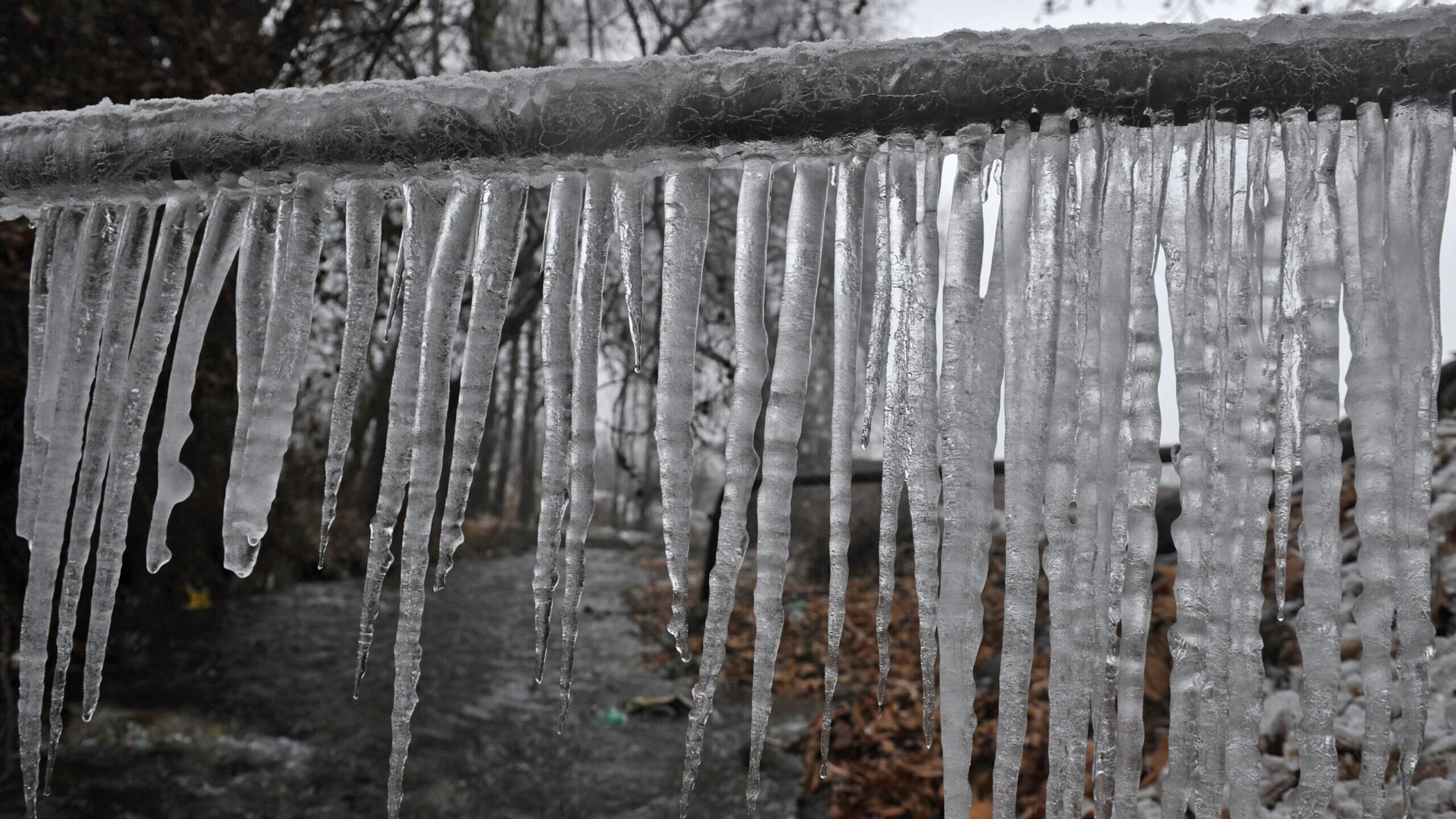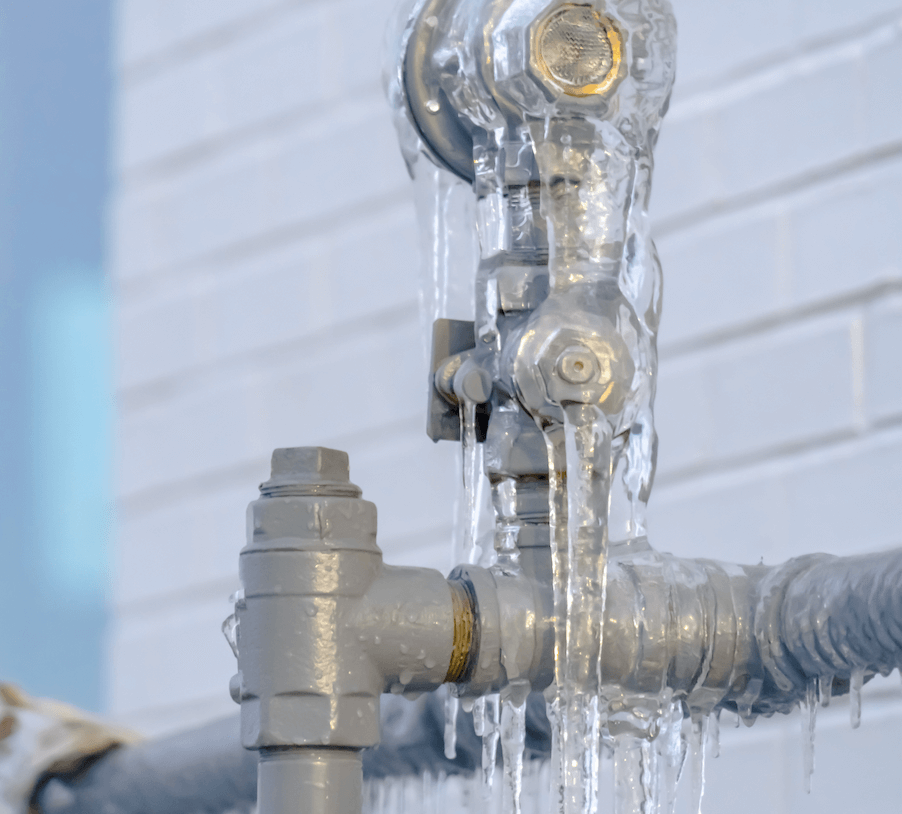Avoiding Frozen Plumbing in Winter: Professional Advice
Avoiding Frozen Plumbing in Winter: Professional Advice
Blog Article
Are you currently trying to find guidance around How to prepare your home plumbing for winter weather?

Cold weather can ruin your pipes, particularly by freezing pipelines. Here's exactly how to stop it from happening and what to do if it does.
Introduction
As temperature levels drop, the danger of frozen pipes increases, possibly bring about expensive repair work and water damage. Recognizing how to stop icy pipelines is vital for property owners in cold climates.
Comprehending Frozen Pipes
What causes pipes to ice up?
Pipelines ice up when subjected to temperatures below 32 ° F (0 ° C) for extended durations. As water inside the pipes freezes, it increases, putting pressure on the pipe walls and possibly causing them to break.
Dangers and damages
Icy pipes can bring about water system disruptions, residential property damage, and pricey repairs. Ruptured pipes can flood homes and create substantial architectural damage.
Indications of Frozen Pipes
Identifying icy pipelines early can stop them from bursting.
Exactly how to recognize icy pipes
Try to find lowered water circulation from taps, unusual odors or sounds from pipelines, and noticeable frost on subjected pipelines.
Avoidance Tips
Insulating vulnerable pipes
Wrap pipes in insulation sleeves or make use of warmth tape to shield them from freezing temperatures. Focus on pipes in unheated or exterior locations of the home.
Home heating techniques
Maintain indoor rooms effectively warmed, particularly locations with plumbing. Open closet doors to enable cozy air to circulate around pipelines under sinks.
Securing Outside Plumbing
Yard hoses and exterior taps
Disconnect and drain pipes garden tubes before winter. Mount frost-proof spigots or cover outside taps with protected caps.
What to Do If Your Pipelines Freeze
Immediate actions to take
If you believe frozen pipes, maintain faucets available to soothe pressure as the ice thaws. Use a hairdryer or towels soaked in warm water to thaw pipelines slowly.
Long-Term Solutions
Architectural changes
Take into consideration rerouting pipes far from outside wall surfaces or unheated locations. Include added insulation to attics, basements, and crawl spaces.
Upgrading insulation
Purchase top notch insulation for pipes, attics, and walls. Proper insulation helps keep consistent temperatures and decreases the risk of icy pipelines.
Verdict
Preventing icy pipelines requires proactive measures and quick actions. By understanding the reasons, signs, and safety nets, homeowners can secure their plumbing throughout winter.
Helpful Tips to Prevent Frozen Pipes this Winter
UNDERSTANDING THE BASICS: WHY PIPES FREEZE AND WHY IT’S A PROBLEM
Water freezing inside pipes is common during the winter months, but understanding why pipes freeze, and the potential problems it can cause is crucial in preventing such incidents. This section will delve into the basics of why pipes freeze and the associated problems that may arise.
THE SCIENCE BEHIND FROZEN PIPES
When water reaches freezing temperatures, it undergoes a physical transformation and solidifies into ice. This expansion of water as it freezes is the primary reason pipes can burst. As the water inside the pipe freezes, it expands, creating immense pressure on the walls. If the pressure becomes too great, the pipe can crack or rupture, leading to leaks and water damage.
FACTORS THAT CONTRIBUTE TO PIPE FREEZING
Low Temperatures: Extremely cold weather, especially below freezing, increases the risk of pipes freezing. Uninsulated or Poorly Insulated Pipes: Pipes located in unheated areas, such as basements, crawl spaces, or attics, are more prone to freezing. Insufficient insulation or lack of insulation altogether exacerbates the problem. Exterior Wall Exposure: Pipes running along exterior walls are susceptible to freezing as they encounter colder temperatures outside. Lack of Heating or Temperature Regulation: Inadequate heating or inconsistent temperature control in your home can contribute to frozen pipes. PROBLEMS CAUSED BY FROZEN PIPES
- Pipe Bursting: As mentioned earlier, the expansion of water as it freezes can cause pipes to burst, resulting in significant water damage.
- Water Damage: When pipes burst, it can lead to flooding and water damage to your property, including walls, ceilings, flooring, and personal belongings.
- Structural Damage: Prolonged exposure to water from burst pipes can compromise the structural integrity of your home, leading to costly repairs.
- Mold and Mildew Growth: Excess moisture from water damage can create a favorable environment for mold and mildew growth, posing health risks to occupants.
- Disrupted Water Supply: Frozen pipes can also result in a complete or partial loss of water supply until the issue is resolved.
WHY CERTAIN PIPES ARE MORE PRONE TO FREEZING
- Location: Pipes located in unheated or poorly insulated areas, such as basements, crawl spaces, attics, or exterior walls, are at higher risk of freezing.
- Exterior Pipes: Outdoor pipes, such as those used for irrigation or exposed plumbing, are particularly vulnerable to freezing as they are directly exposed to the elements.
- Supply Lines: Pipes that carry water from the main water supply into your home, including the main water line, are critical to protect as freezing in these lines can affect your entire plumbing system.
- Underground Pipes: Pipes buried underground, such as those connected to sprinkler systems or outdoor faucets, can be susceptible to freezing if not properly insulated.
https://busybusy.com/blog/helpful-tips-to-prevent-frozen-pipes-this-winter/

Do you really like reading up on How to Prevent Your Pipes From Freezing? Try leaving feedback further down. We'd be delighted to find out your suggestions about this write up. Hoping that you come back again before long. Sharing is caring. You just don't know, you may just be helping someone out. We love reading our article about How to prepare your home plumbing for winter weather.
About This Report this page